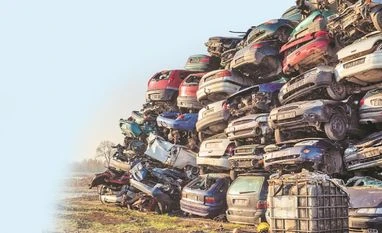Low discount may not drive polluting old vehicles towards scrapping shops
Automobile sector experts argue that consumers may find more value in continuing to drive their existing vehicles or selling them to third parties
)
Explore Business Standard

Associate Sponsors
Co-sponsor
Automobile sector experts argue that consumers may find more value in continuing to drive their existing vehicles or selling them to third parties
)
Already subscribed? Log in
Subscribe to read the full story →

3 Months
₹300/Month
1 Year
₹225/Month
2 Years
₹162/Month
Renews automatically, cancel anytime

Over 30 premium stories daily, handpicked by our editors



News, Games, Cooking, Audio, Wirecutter & The Athletic

Digital replica of our daily newspaper — with options to read, save, and share



Insights on markets, finance, politics, tech, and more delivered to your inbox

In-depth market analysis & insights with access to The Smart Investor



Repository of articles and publications dating back to 1997

Uninterrupted reading experience with no advertisements



Access Business Standard across devices — mobile, tablet, or PC, via web or app
First Published: Sep 03 2024 | 6:38 PM IST